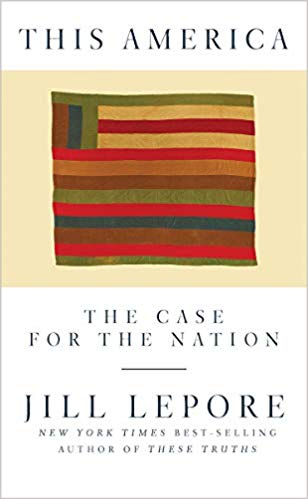America, in search of America

American citizenship, like so much else, has become weaponized. To many on the right, if you question any aspect of America's greatness — even if you simply mention that slavery is a huge part of American history — you are un-American. If you try to tell some people I know on the left that America has accomplished some good and is founded on a good idea, you're hopelessly naive at best, or minimizing the experience of entire groups of people at worst.
I don't mean to play both sides, here. The truth is, I've only rarely been accused of being a corporatist lapdog by a small handful of people on the left, while Republicans accuse me of hating America all the time. But these extremes are telling: it's hard to imagine the left and the right coming to an agreement on the meaning of America anymore.
In her book This America: The Case for the Nation, Jill Lepore argues that American citizenship has lost its meaning, and that Americans have lost a common sense of identity. At under 150 pages and published in a large font with huge spacing, the book feels slight, but Lepore's argument still feels thoughtful and well-supported.
Still, This America feels like a prologue for a longer, more in-depth examination of the American idea that has yet to be written. Lepore walks the reader through American history, recognizing how the establishment has ignored or even targeted groups that are outside the protection of privilege. She argues against blind nationalism in favor of a complicated patriotism that acknowledges our blind spots and failures as a nation.
At the Reading Through It Book Club last night, we wondered why Democrats are so bad at embracing patriotism. While it's true that President Obama made some beautiful pronouncements of love for the United States over the course of his career, he could never coax his party into a fervent embrace of nation. It just seems to be in our character to keep our cynical distance from a full-on patriotism.
Which is a shame, because the conservative embrace of patriotism is complete. Love of country is often used as a cudgel to fend off criticisms and questions. Opposition is often framed as hatred of the nation. It's intended and used as a stifling of opposition in public conversation.
But patriotism used as a weapon isn't true patriotism. Unlike the hatred of nationalism, patriotism is a positive force — a common understanding of who we are and where we're going. Is it even possible to bring together Americans under the guise of patriotism anymore? Would a reinstatement of a robust civics curriculum help, or perhaps two years of mandatory community service for all young Americans? Is there any way to restore something we can all experience in these hyper-personalized times?
One member of the book group suggested that LGBTQ Pride celebrations are a model for patriotism. There's an unalloyed commonality to Pride, a collection of multiple disparate communities coming together to celebrate achievements and recognize obstacles that have yet to be overcome. There is not one monolithic LGBTQ identity, yet LGBTQ communities have found reasons to work together in tandem and deal with their conflicts as one, under the guise of a single identity. What could be more American than that?